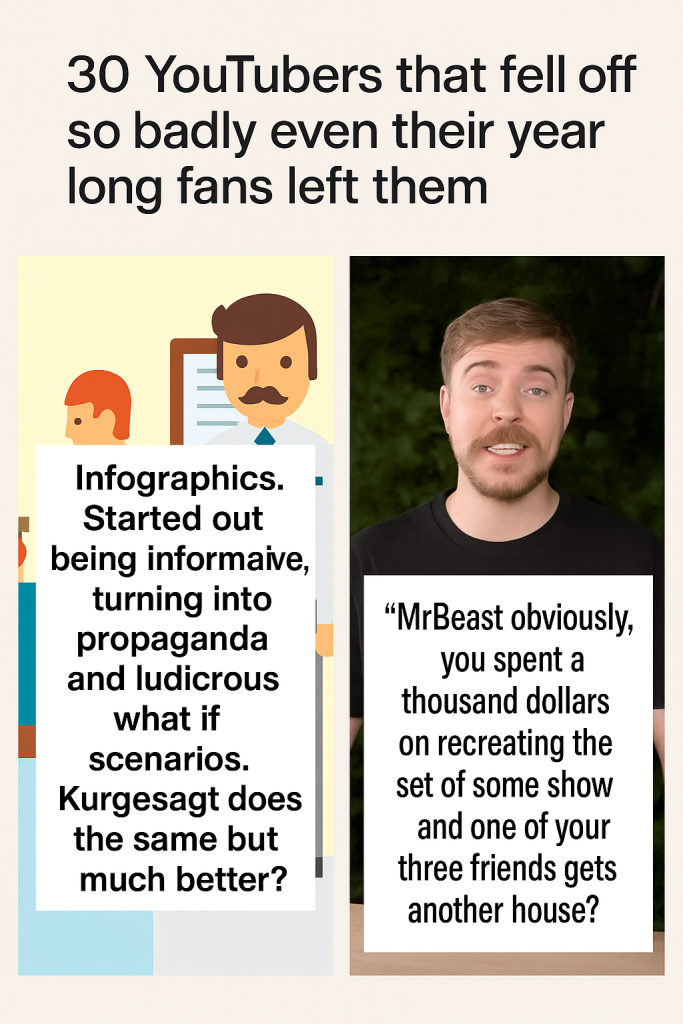In the fast-evolving world of online video content, maintaining a loyal fanbase can be as challenging as growing one. A recent infographic that has been circulating on social media sheds light on a striking trend: 30 YouTubers who fell off so badly that even their year-long fans abandoned them. This revelation offers a compelling look into how creators, once celebrated for their informative content, have seen their audiences dwindle — largely due to perceived shifts in their messaging and content tone.
The infographic, which catalogs these creators, identifies a common trajectory. Many YouTubers began their channels focused on delivering valuable information, entertainment, or education. Over time, however, a number of these once-trusted voices allegedly transitioned toward content that critics describe as propaganda or overtly biased messaging. This shift, according to viewer feedback, was disheartening and alienating.
Fan comments and social media discussions point to several key reasons behind this mass exodus:
- Loss of Authenticity: Many longtime fans noticed a change in tone, style, and the nature of the content — moving away from balanced perspectives toward one-sided narratives.
- Over-commercialization: Some YouTubers drastically increased sponsored content or pivoted to aggressive self-promotion, causing viewers to question their original sincerity.
- Controversial Topics: Engagement with divisive political or societal issues without nuanced discussion led to polarization within their communities.
- Algorithmic Pressures: To appease platform algorithms or chase virality, creators sometimes adopted sensationalist or clickbait tactics that frustrated loyal audiences.
One notable aspect of this trend is the ripple effect on creators’ reputations. When fans who have supported a channel for years disengage, the resulting decrease in views and interaction accelerates the downward trajectory, creating a challenging cycle to break. Some channels have attempted rebranding or apologies, but regaining trust has proven difficult.
This phenomenon highlights the broader challenges faced by digital content creators amid shifting social and political climates. The desire to stay relevant often conflicts with audience expectations and personal convictions. Experts analyzing these shifts emphasize the importance of consistency and transparency to retain trust in the long term.
For viewers, the takeaway may be a reminder to critically assess the content they consume — even from familiar sources. The once clear boundaries between informative content and opinion can sometimes blur, leading to confusion and disappointment.
As YouTube continues to be one of the most influential platforms globally, the fate of these 30 creators serves as a cautionary tale. It underscores how quickly public perception can change and how vital it is for creators to keep the trust of their community intact, or risk watching years of loyalty evaporate.
Ultimately, this social media moment invites a wider conversation about creator responsibility and the evolving relationship between influencers and their audiences. Will these YouTubers find a way to reconnect with their fans, or are they a sign of a new era where audience attention spans and allegiance are more fragmented than ever?



